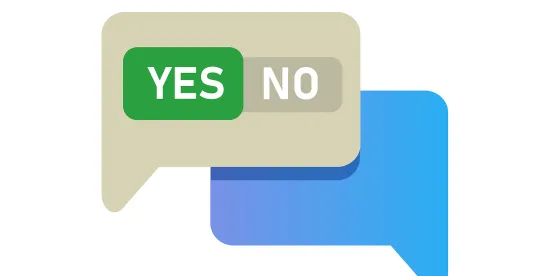For those of you that missed it I broke down the oral argument on the IMC appeal of the FCC’s TCPA one-to-one consent rule.
Massive curveball by the court– although IMC’s arguments seemingly fell flat the court unexpectedly looks interested in protecting something called the “consumer’s right to consent.” Yet the court was also clear the FCC could “implement” the TCPA around the word “express” to assure that consumer consent was “clearly and unmistakably stated.”
Finding the line between these two concepts– a “right to consent,” on the one hand, and the ability to “implement” that right, on the other— will drive the outcome of the appeal.
The “right to consent” concept was new and novel and no one was prepared for it– certainly not the FCC’s counsel who had to grapple with it. As a friend of mine put it:
The ”consumer rights” blade was so sharp that the FCC guy didn’t know he’d been beheaded until he went to comb his hair, and his head fell off.
That about sums it up.
So where is this thing going to land now? I had previously given this a 10% chance of success– and given the way oral argument went, that was probably too high. IMC’s arguments were seemingly rejected out of hand.
But the Court has seemingly decided to take the opportunity to look past those arguments and create an entirely new paradigm for limiting federal agency power– perhaps what we’d expect from a panel of three Trump-appointed judges.
So here are the new possible outcomes and chances:
- 33% Chance: The one-to-one rule is struck down completely and court provides no additional clarifications:Oddly this is now the most likely outcome, although it is still only a 1/3 chance. While it is always dangerous to make guesses about case outcomes following oral argument, these judges seemed to have thought through these issues and developed an analytic framework that was inconsistent with limiting consent–especially the “logically and topically related” standard. While it is possible the court severs that out, I think the more likely option is for the court to strike down the rule. The FCC would be left with instructions to go back and try again.
- 25% Chance: The one-to-one rule lives on with no changes at all: Never underestimate the power of inertia. While the court seemed inclined to limit the FCC’s power there was plenty of “wiggle room” suggested in the argument. Plus you just never can tell with oral argument– head fakes are common. The judges are often just beginning their assessment of a case. That said, this one felt like the judges had prepared extensively before the hearing– so perhaps a better read is possible here than usual.
- 20% Chance: One-to-one rule lives on with Logically and Topically Stricken: After oral argument I think this is what the court wants to do but there’s no really good way to get there. Still it is more likely this happens than the other limited rulings noted below.
- 10% Chance: Court allows the rule to live on but limits it in some way through judicial edict: Again feels like the Court might be interested in doing something like this but the path is murky. Could imagine a scenario where the rule is left in tact but the Appellate Court tells the lower courts it cannot be interpreted in a way that would limit a consumer’s substantive right to consent. Where that would leave us depends on the scope of the court’s ruling. Could be very interesting.
- 10% Chance: Court strikes down rule but makes damaging court-made limitations on express consent that makes us wish one-to-one was still in effect: Listening to the oral argument it was clear the Court thought the FCC could implement the statute by requiring consumers to provide checkbox consents, destroy hyperlinks, etc. I suspect the Court will consider taking the opportunity to make these rulings itself–defining “express consent” in a manner that tightly limits how consent can be provided– while simultaneously striking down the rule. It would be the ultimate power grab by the court– taking the FCC’s ball and telling it to go home because they’ve got it handled. The problem: whatever the eleventh circuit dreams up will likely be scarier than what the FCC handed us– we haven’t had time to prepare for it and it would be retroactive in effect! A judge-made rule WOULD BE RETROACTIVE which means we could all be in a world of hurt.
- 2% Chance: Something truly outlandish. At this point we can’t rule anything out. Maybe the Court decides the FCC wasn’t constitutionally established and all rulings by the agency must be stopped. Maybe the court revisits standing and decides IMC can’t pursue the appeal. Maybe the TCPA is struck down as unconstitutional. A court willing to look past the parties’ briefing and focus on a never-before-recognized “right to consent” may be willing to do just about anything. So we may need to expect the unexpected.
So adding these all up I now see an above 50% chance the rule goes away in some form or fashion (wow!!!!) and there is a 10% chance that the court makes things horrible and even worse. (eesh!!!).
We will know a lot more in the next couple of weeks. If the court issues a stay we can feel pretty confident the rule is in trouble. If no stay is issued– well that is pretty telling!




 />i
/>i

